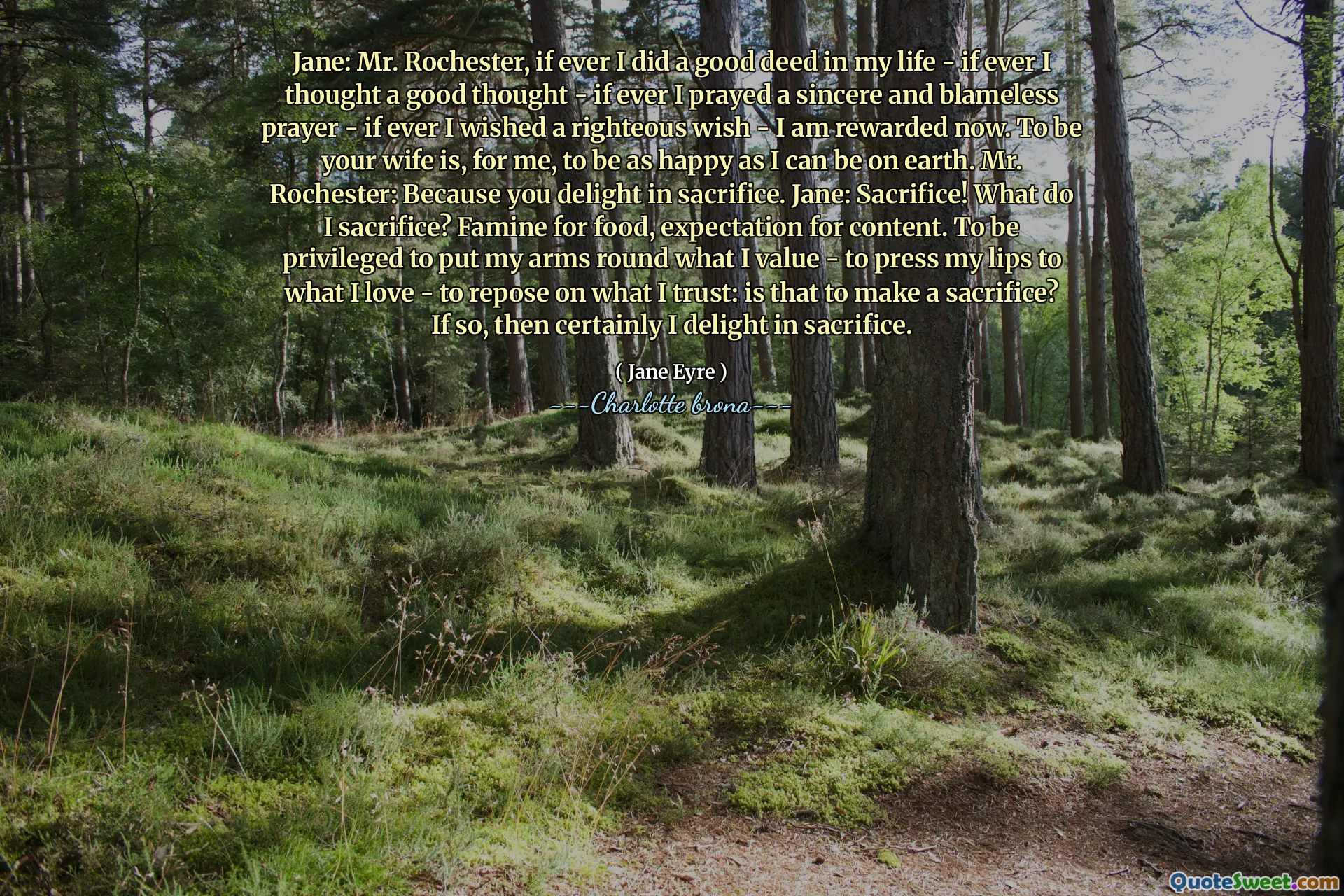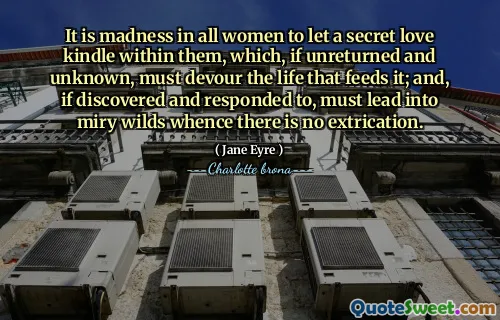
Jane: Mr. Rochester, if ever I did a good deed in my life - if ever I thought a good thought - if ever I prayed a sincere and blameless prayer - if ever I wished a righteous wish - I am rewarded now. To be your wife is, for me, to be as happy as I can be on earth. Mr. Rochester: Because you delight in sacrifice. Jane: Sacrifice! What do I sacrifice? Famine for food, expectation for content. To be privileged to put my arms round what I value - to press my lips to what I love - to repose on what I trust: is that to make a sacrifice? If so, then certainly I delight in sacrifice.
This quote captures a profound dialogue between Jane and Mr. Rochester, illustrating the depth of love and contentment Jane experiences. The essence of the conversation revolves around the concept of sacrifice in relationships. Mr. Rochester assumes that Jane must be making sacrifices to be with him, suggesting a particular kind of hardship or deprivation. However, Jane challenges this notion by redefining what sacrifice means to her. Instead of seeing love as a loss or a deprivation, she frames it as a rewarding experience that brings fulfillment, joy, and security.
Jane's response is both empowering and tender. She highlights that the great joys in her life—love, trust, and connection—are far greater than any material or comfort-based sacrifices. The reframing from sacrifice to delight reflects a mature understanding of love not as submission or loss, but as a mutual fulfillment of emotional needs. This perspective is especially poignant given the context of the novel 'Jane Eyre,' where Jane's life has been marked by hardship and a powerful quest for self-respect and independence.
Moreover, the interplay between the two characters reveals their dynamic and emotional growth. Mr. Rochester’s initial belief in the notion of sacrifice is softened by Jane's steadfast, honest, and loving interpretation, emphasizing the transformative power of their relationship. The quote brilliantly encapsulates love as an uplifting rather than diminishing force.
In a broader sense, this dialogue invites readers to reconsider their own perceptions of sacrifice within relationships, urging a shift from duty and loss to joy and mutual enrichment. Jane's words resonate as a timeless reminder that true love delights in giving and receiving, enriching life rather than diminishing it.










